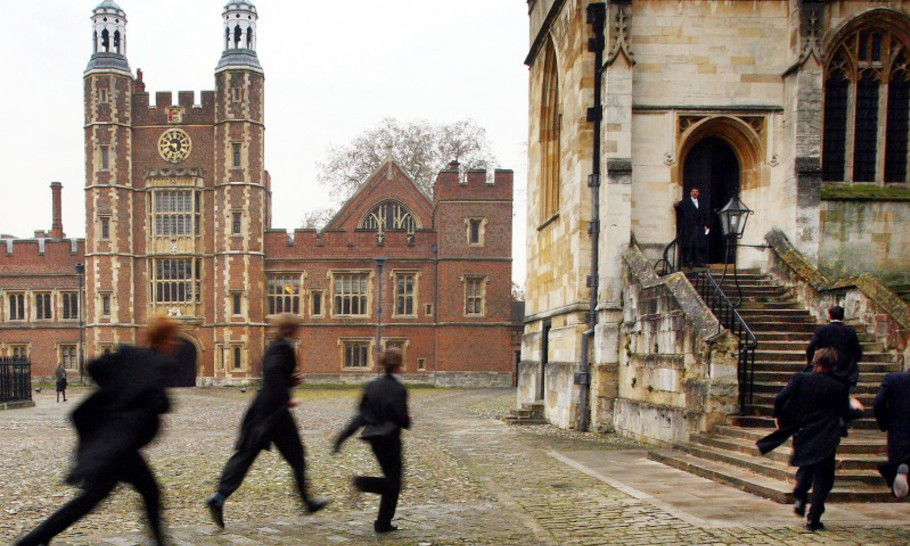When did privilege become a dirty word?

An ever-present force during the Tory leadership contest has been the spectre of a Marxist (Jeremy Corbyn) becoming prime minister. The irony of this is that it has been the line of argument from the party whose outgoing prime minister has been its most left-wing leader in forty years. As many have already highlighted, Theresa May’s government stole much of its agenda from former Labour leader ‘Red Ed’ Miliband, as well as recent Labour and Green manifestos. This included policies such as energy price caps, curbing executive pay, increasing worker representation on company boards, banning the ivory trade, waging war on plastic and the Clean Air Act.
But it’s not just the policies of the May era that have been left-wing – so too has the language. When talking about the poorest in society, the Tories usually refer to the ‘disadvantaged’, ‘the poor’, ‘lower-income families’, ‘working people’ or just ‘ordinary people’. Theresa May, on the other hand, has been the first Tory prime minister to have openly made class part of a Tory prime minister’s vocabulary. On the steps of Downing Street, she promised to remedy the injustices faced by the ‘white, working class’ and, throughout her tenure, there has been a sense that the Tories no longer want to be the party of the well-heeled. Just look at how the knife crime epidemic was framed by several of her cabinet ministers as the fault of ‘middle class drug users’. Likewise, one Tory backbencher openly called for the Tories to be renamed ‘The Workers’ Party’.
And this is why the question of privilege has been so important during the Tory leadership contest. After all, it’s not the first time that one of their leadership contests has been dominated by the privately-educated, yet this contest in particular has proven to be a race to the bottom in terms of the candidates’ backgrounds. Sajid Javid might have been the catalyst in this respect, referring to himself variously as ‘the son of a Pakistani bus driver’, an ‘outsider’ and Homer Simpson. Michael Gove invoked his humble origins as an electoral asset against Jeremy Corbyn, whom he described as ‘born into the purple of the middle class’. Such unabashed class politics seems a long way from John Major’s ‘classless society’ and even David Cameron’s ‘Big Society’. And as a result, Rory Stewart was forced to identify his Etonian background as his ‘weakness’, Rachel Johnson described her brother, Boris, as ‘not that posh’, and Dominic Raab referred to himself as ‘sort of middle class’.
The truth is that this leadership contest has exposed just how dirty a word privilege has become in the UK. In comparison, across the pond the billionaire president from Long Island feels no compulsion to dwell on (or feel guilty about) his privileged background. Quasi-aristocratic families like the Kennedys, the Bushes and the Trumps – the 1% that the likes of Bernie Sanders rail against – were all elected into office having faced none of the class hatred that they would have had they sought office in the UK. Trump does not begin every sentence ‘as the son of a blue-collar worker’ in order to win their support – he just tells them they’re great. If he does lose their support, it won’t be because of The New York Times’s investigation into the extent of his inherited wealth – it will because of his trade policies.
As Richard Reeves, author of Dream Hoarders: How the American Upper Middle Class is Leaving Everyone Else in the Dust, Why That is a Problem, and What to Do About It, has highlighted, Americans do not tend to feel the class guilt that Britons do – their culture is too ingrained with the message of merit. As he put it: ‘the agonising discussions over whether British liberal parents should send their children to public schools doesn’t happen here. In the US, parents are aware of structural unfairness but with a total lack of moral queasiness’. Joe Biden – the frontrunner to run against Trump in 2020 – launched his presidential campaign with an appeal to ‘the great American middle class’. If one of the Tory leadership contenders had done the same, their campaign would have been over before it had begun.
In any case, it is now certain that Trump will soon be doing business with a privately-educated British prime minister: Boris or Hunt, Eton or Charterhouse. But though the privileged few have won this leadership battle, it might prove to be a Pyrrhic victory – and perhaps their last. May has let the class genie out of the bottle, and this leadership contest has exposed how the Tories have never been more conscious of their privilege (or, in some cases, more proud of their roots). Forget Corbyn, the spectre of Marxism might be closer to home.





